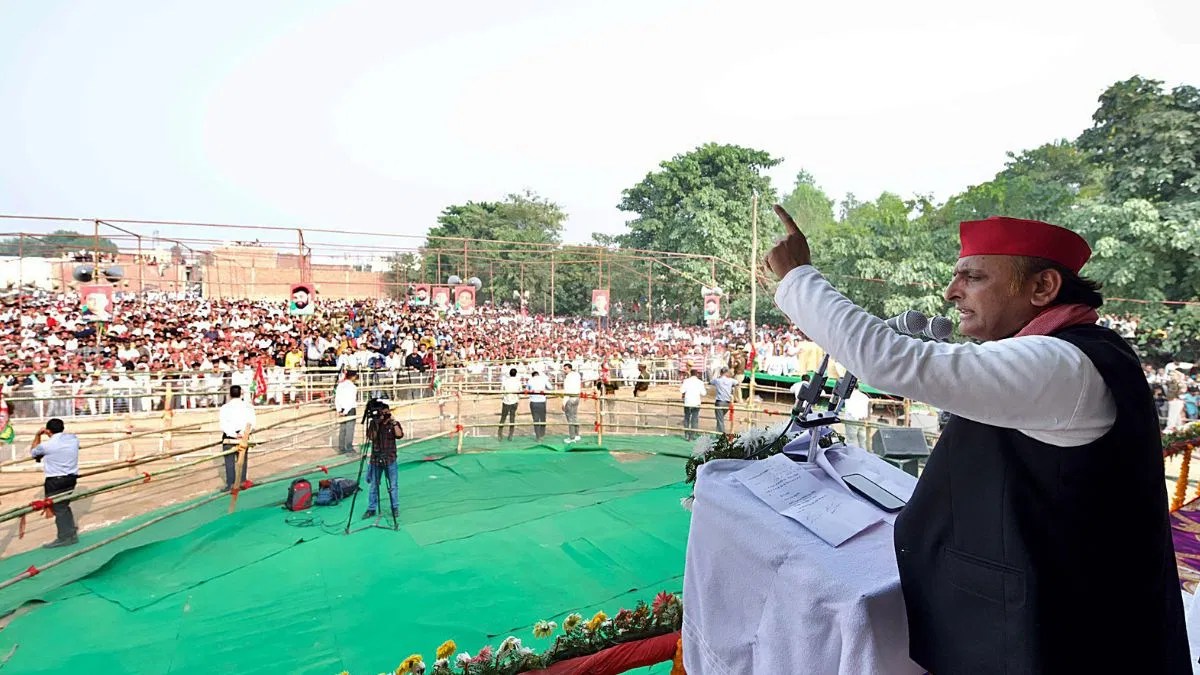‘Trustworthy historical past, not ideology’—NCERT social science panel chief on modifications in Class 8 textbook
New Delhi: India has tended to current a ‘very light‘ and ‘sanitised‘ model of historical past, avoiding disagreeable facets, however “we took a unique and extra sincere strategy by introducing college students to the ‘darker chapters‘ of historical past as nicely“, Michel Danino, the top of the NCERT committee behind the drafting of the brand new social science textbooks, informed ThePrint in an interview.
The Nationwide Council of Instructional Analysis and Coaching (NCERT) has just lately launched the Class 8 social science textbook, according to the Nationwide Curriculum Framework and the Nationwide Schooling Coverage (NEP) 2020. The guide, Exploring Society: India and Past, highlights situations of “brutality” and “spiritual intolerance” in the course of the rule of the Mughals and the Delhi Sultanate. The Marathas, in distinction, are portrayed in a extra constructive mild.
Critics have described these modifications as an “ideological transfer” that selectively glorifies or vilifies historic figures.
In an interview with ThePrint Tuesday, Michel Danino, nevertheless, denied any ideological interference within the drafting of the brand new textbooks.
“No political chief got here to us saying, ‘You must embrace this, or point out this explicit determine or reality’. No ideological group of any variety contacted us to say, ‘It’s essential to embrace this chapter’, and so forth,” he stated.
Danino stated that thus far in India, there had been an inclination to make a “very light” and “barely sanitised” model of historical past, “the place we keep away from all unpleasantness, considering maybe that that is going to, you recognize, traumatise the scholar and so forth”.
“We took one other strategy. Initially, we made an sincere one—disclaimer, for those who want to name it that, to the scholar—that there are darker chapters in historical past. And we weren’t, some commentators within the media stated that we spoke of the darkish ages within the medieval interval; we by no means use this phrase,” he stated.
In a ‘Observe on some darker intervals in history’, the disclaimer reads: “Nobody must be held accountable at this time for occasions of the past.”
Michel Danino defined that the textbook addressed the brutality of some historic occasions, notably warfare. He famous that whereas warfare at all times existed, there are differing kinds—some with restricted affect on civilians, and others that contain important cruelty and struggling. The committee supposed to spotlight the excellence as a result of it represented a sound historic strategy, he stated.
Danino additionally stated the textbook didn’t focus solely on violence or negativity. “Opposite to media studies, we didn’t merely state that Akbar was brutal in his youth. That perspective comes from his admission in his memoir, Akbarnama, the place he recounts his army campaigns. You may sense, he isn’t completely happy with his previous, however he’s sincere about it.”
“Tright here is nothing flawed with mentioning this—it helps us perceive the completely different sides of a historic determine. We aimed to replicate the complexity of such personalities and to keep away from excessive characterisations, whether or not overly constructive or damaging.”
Additionally Learn: NEP turns 5: Features, gaps & floor realities, a report card on India’s largest training reform
‘Marathas dismantled the Mughal Empire’
The revised Class 8 textbook portrays the Marathas, who dominated over a Seventeenth-century kingdom in western India, as rulers who established “sovereignty”, describing their founder, Chhatrapati Shivaji, as a “strategist” and “true visionary”.
It compares Shivaji’s defeat of the Mughal nobleman Shaista Khan to a “modern-day surgical strike”, highlighting that in his retaliatory actions, Shivaji was at all times “cautious” to not assault spiritual locations.
Denying “selective glorification” allegations, Michel Danino stated: “We chosen the Marathas as a result of they performed an necessary—and largely uncontested—position in dismantling the Mughal Empire.”
“Remember, Aurangzeb spent the final 25 years of his life within the Deccan and was unable to return to Delhi. Whereas he was additionally preventing different regional powers, the Marathas shortly turned his essential concern. After his loss of life, the Maratha Empire managed a big a part of India, even when just for a comparatively quick interval,” he stated.
From a political historical past perspective, Danino added, the Marathas deserved the eye of the Indians.
“Whether we’ve glorified them excessively, I’m not certain. For instance, we insisted on together with the Maratha raids in Bengal, which have been very brutal and traumatised the native inhabitants. We may have left that out if we have been solely glorifying them, however we didn’t,” he stated.
Danino added: “I imagine some members of our group additionally needed to counterbalance the neglect the Marathas have obtained in earlier textbooks, the place they discover temporary point out solely. The Marathas deserve far more research than we have been capable of present—for example, their administrative system was fairly modern in some ways.”
Critics have identified that the textbook doesn’t get into as many particulars on the violence of the Marathas—the raids within the Rajput kingdoms or violent annexations of Bengal, Bihar, and Odisha, devastating native populations and forcing folks to pay tributes referred to as ‘chauth‘, or the destruction of temples in Karnataka—because it does for the Mughals.
Michel Danino, nevertheless, emphasised it was necessary to keep away from merely saying one thing had been faraway from or added to the textbook. The committee drafted the brand new textbooks with a unique strategy, masking a much wider chronological scope, he stated, including that the designing of textbooks underneath the Nationwide Curriculum Framework was such that the books weren’t imagined to be text-heavy, and subsequently, the panel needed to give you “compressed timelines”. “We made sure selections. There are issues that are unnoticed, and we’ve not denied that.”
“We have been underneath criticism for leaving sure issues out, however given the context—which I’ve defined—it was unavoidable. We’ve got tried to be sincere with historical past. There are various views, together with nationalist historical past, Marxist historical past, and others. Good historians perceive that no interpretation is ever remaining,” Danino stated.
“I imagine we are able to try for what I name sincere historical past—primarily based on the info accessible—the place we goal to do justice to the previous, though we inevitably need to make sure selections,” he added.
Mistaken picture of colonial instances?
Based on Michel Danino, the committee extensively felt that many younger Indians proceed to carry a considerably constructive picture of the colonial interval, with out absolutely understanding the extent of the harm it triggered.
The revised guide is extra vital of the historical past of the Colonial Period than the sooner books.
“Famines, a minimum of, are actually slowly turning into extra extensively identified,” Danino stated. “Although they have been virtually fully absent from earlier textbooks, these have been, in spite of everything, engineered famines, or on the very least, made a lot worse by the ruthless taxation insurance policies of the British, and the deliberate lack of reduction supplied to the victims.”
Furthermore, Michel Danino emphasised that confronting such historic truths was important for nationwide self-respect. “We felt that any self-respecting nation owes recognition and respect to the victims of previous atrocities—and these have been atrocities.”
He additional highlighted the huge financial exploitation India endured underneath colonial rule.
“The plunder of India’s wealth isn’t controversial—it’s one thing the British themselves documented. The information reveals the huge quantity of wealth extracted from India by a number of channels: outright taxation, the creation of the so-called ‘India debt’, and compelled contributions to colonial tasks like railway and telegraph development, the Indo-Afghan wars, and even the deployment of troops to suppress the Nice Riot of 1857,” Danino stated.
Based on Michel Danino, historic information verify that India was nonetheless a affluent and economically vibrant land earlier than British enlargement.
“Tright here was sturdy agricultural manufacturing, vibrant commerce, and flourishing exports—from cotton and spices to completed items. All of this—destroyed in a remarkably quick time. Inside only a century, India turned a deeply impoverished nation,” he stated.
(Edited by Madhurita Goswami)
Additionally Learn: Two realities of NEP: Sensory lecture rooms & hi-tech labs, to children sitting on flooring & no academics
Source link
latest video
latest pick
news via inbox
Nulla turp dis cursus. Integer liberos euismod pretium faucibua






















